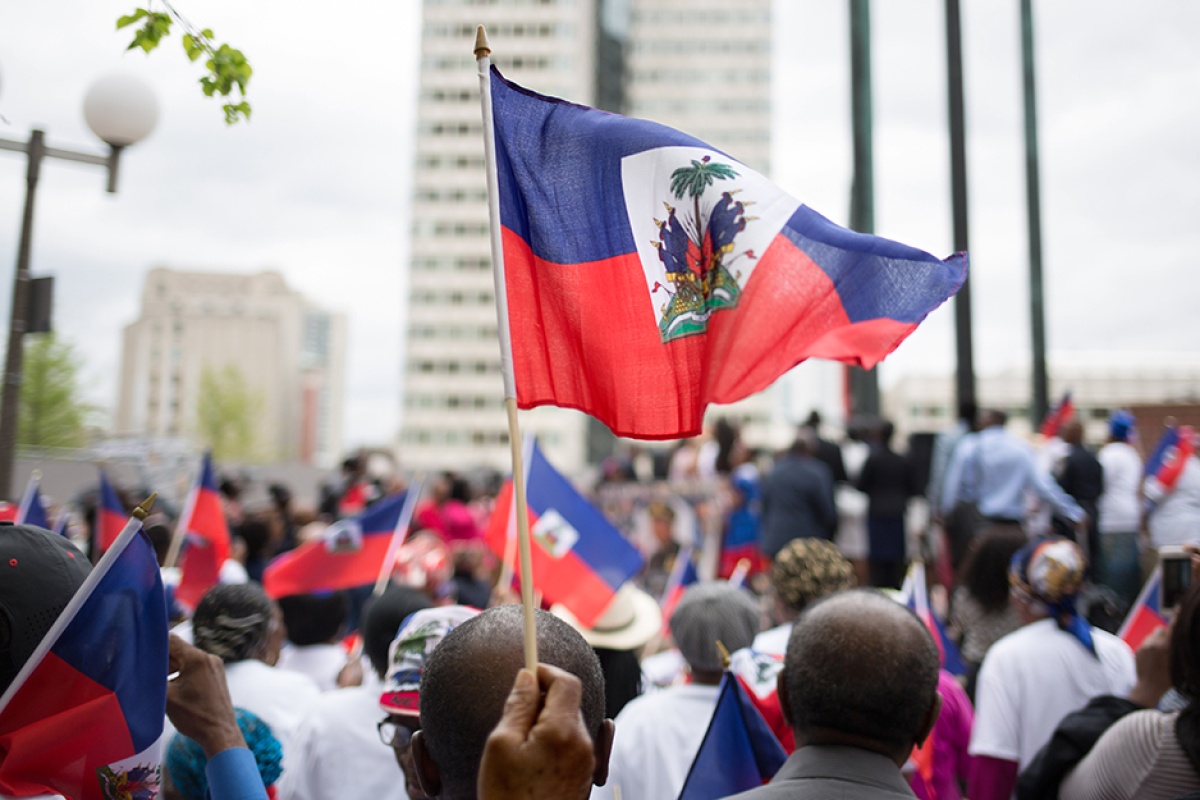PIH Stands with Haiti on Earthquake Anniversary
Posted on Jan 11, 2018

Eight years after nearly 300,000 people lost their lives and hundreds of thousands more were injured when a catastrophic earthquake struck Haiti, Partners In Health stands with the country in solidarity, support, and remembrance.
The magnitude-7.0 earthquake struck Haiti on Jan. 12, 2010, with an epicenter about 15 miles west of the capital, Port-au-Prince.
Zanmi Lasante, as PIH is known in Haiti, has been providing health care in Haiti’s Central Plateau and the lower Artibonite for 33 years. PIH leadership and staff provided emergency care in the earthquake’s aftermath, attended to the mental health needs of the traumatized, and helped families get back on their feet. Staff also were there when cholera infected thousands of Haitians just 10 months after the quake, and they continue to battle the ongoing epidemic, which has killed more than 9,700 people and sickened 815,000.
Meanwhile, immigration debates continue to place the lives of tens of thousands of Haitians in turmoil.
In the wake of the 2010 disaster, then-President Barack Obama’s administration granted protection from deportation to 59,000 Haitian nationals in the U.S. who fell under a classification called Temporary Protected Status, or TPS. The federal government regularly renewed their status in following years.
That practice changed on Nov. 20, 2017, when President Donald Trump announced that his administration would not renew the TPS designation for Haitians, claiming that the “stability and quality of life” in Haiti had improved enough for them to return. The administration gave affected Haitians 18 months to leave the country, or be deported. The news sent ripples of fear through Haitian communities in the United States, and reverberated back home.
As Haiti continues to build its health system, a longstanding PIH leader there said the country is not prepared to welcome back the tens of thousands who sought shelter in the U.S. after the disaster.
“The country is not ready to receive 60,000 people and won’t be ready within the next year,” says Dr. Fernet Leandre, co-executive director of PIH in Haiti.
Leandre says health care is one example of how Haiti is not yet ready to support the return of post-earthquake migrants.
Haiti devotes less than 5 percent of its national budget to the health sector, leaving it grossly underfunded. PIH facilities and staff levels are designed to serve the 1.2 million people neighboring its 12 clinics and hospitals, but staff actually care for a much larger number of patients, many of whom travel from all over the country to receive services.
Haiti’s public hospitals and clinics “are not ready to provide basic health care to more people,” Leandre says. Publicly available specialized care—such as pediatrics, cardiology, or oncology—does not even exist in other parts of the country beyond the capital. “This is why people keep coming to our facilities.”
The 2010 earthquake wasn’t the only natural disaster to hit Haiti in recent years. Hurricane Matthew swept across the country’s southern claw in October 2016, completely wiping away homes, livestock, and crops in a span of several hours.
The devastation left lasting scars. The south provides a third of Haiti’s agricultural produce, Leandre says. Hundred-year-old fruit trees cannot be replaced in a day, and fishermen who lost boats to the storm can’t afford to replace them.
“It will take a decade to see the level of the production from the south getting back” up to normal, Leandre says.
That means there will be less food to go around in a country that already struggles to feed its people. PIH enrolled more than 9,000 new cases of starving children in its malnutrition program in 2016 alone.
Meanwhile, cholera remains an ongoing battle. Since the outbreak in October 2010, PIH has treated more than 180,000 people. That number continues to grow daily.
PIH and Haiti’s Ministry of Health have also partnered on multiple occasions to vaccinate the population against cholera: 50,000 people north of St. Marc in 2012, 800,000 people in the south in 2016, and 90,000 in Mirebalais at the end of last year.
“With the rainy season, we always have a spike” in the number of patients arriving for care, Leandre says.
That spike occurs even though many Haitians have been exposed to the disease for nearly eight years. Imagine what might happen, he says, if 60,000 Haitians—who have never built immunity to the bacteria—arrive in the country next year.
“Those people are not protected or immunized,” he says. “It will be a big risk until we can eradicate cholera.”
Tell President Trump to support Temporary Protected Status for Haitians ▸

